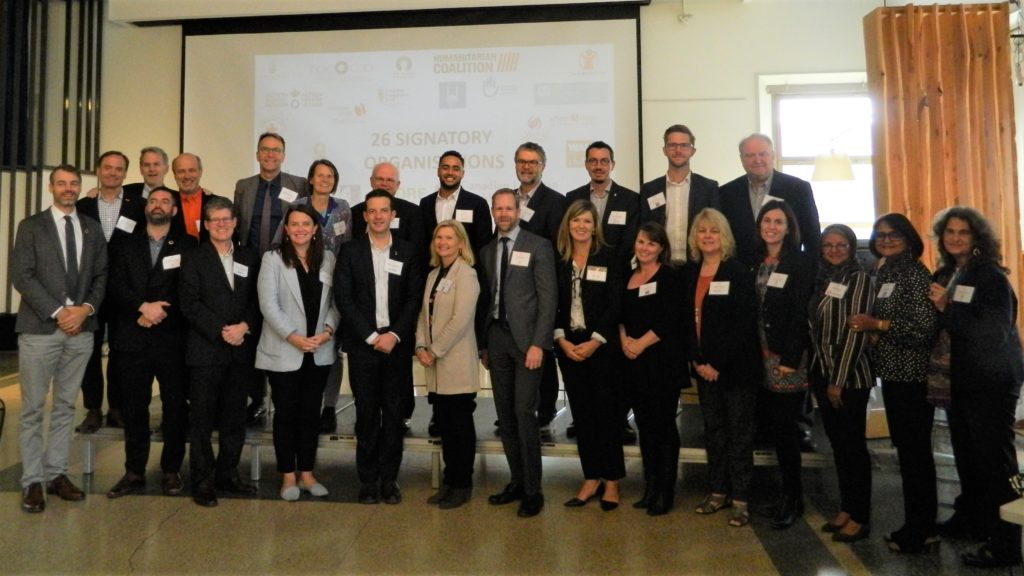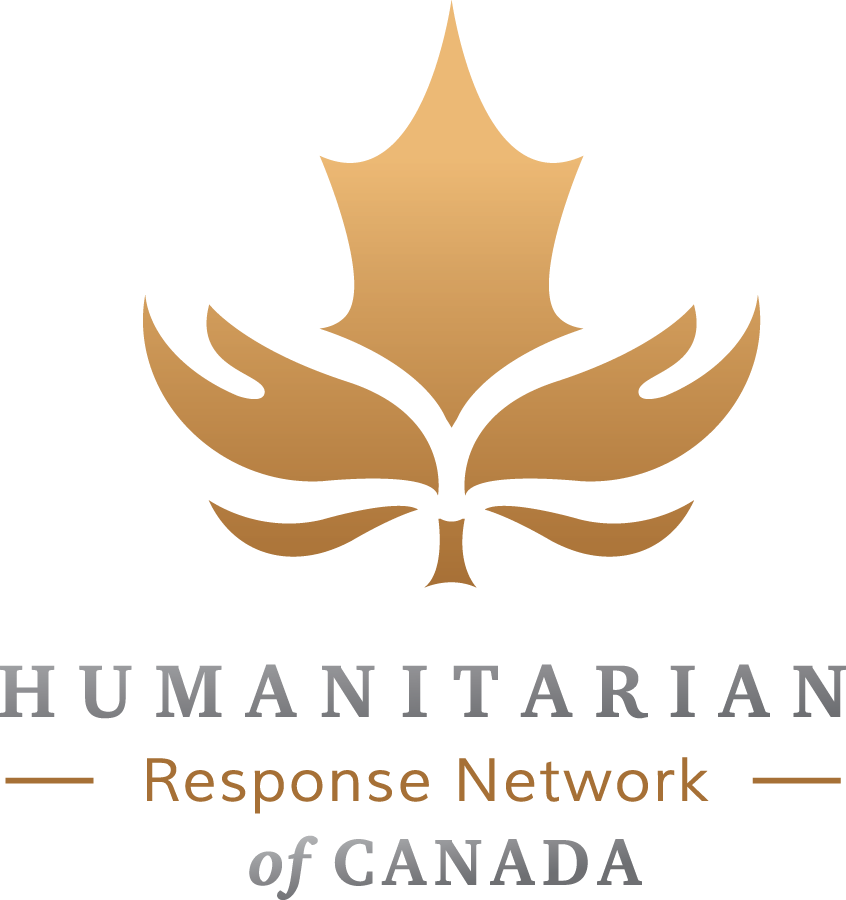
Members of the Humanitarian Response Network of Canada (HRN) met on September 30th in Montreal at the HRN Heads of Agency Meeting (HoA), an annual event that convenes Executive Directors and CEOs of HRN members, their senior humanitarian staff, and Government of Canada representatives to discuss their collective experience in humanitarian response. At the HoA, they confirmed their commitment to work in an integrated, inclusive and principled approach to enable better collaboration between the humanitarian, development and peace sectors. This declaration is a first of its kind made by a group of heads of agencies in Canada.
The statement, signed by 29 organizations, affirms that sustainable solutions for crisis-affected people must be the ultimate objective of all integrated approaches. It emphasizes the importance of collaboration between humanitarian, development, and peace initiatives, with a view to building comprehensive responses that address immediate vulnerabilities and uphold humanitarian principles while integrating more sustainable, long-term, resilience-building, and gender-responsive solutions. This can only be achieved with dedicated and increased resources allocated to all sectors, and with optimized partnerships and structures that enable flexibility to respond to needs across the humanitarian-development-peace nexus.
The statement encourages the Government of Canada to take a similarly integrated and inclusive approach, including by leveraging its diplomatic resources to support an enabling policy environment for durable solutions. Strengthening the humanitarian-development nexus was identified as a top priority at the World Humanitarian Summit (WHS) in 2016.
Quotes:
“The impacts of conflict, climate and natural disaster can rarely be prevented. But more can be done to help people withstand, recover, and rebuild lives after crises. CARE Canada is pleased to join other humanitarian leaders pronouncing our commitment to doing things differently, and to working with policymakers to maximize the impact of Canadian aid on both the causes and the symptoms of poverty, inequality and conflict.” – Mara O’Brien James, President and CEO (Interim), CARE Canada.
“The nexus has been a significant area of focus for World Vision over the past few years. And this commitment by humanitarian agencies to work together is a critical step towards improving the lives of more girls and boys in the world’s most dangerous places. An integrated, agile and long-term approach will help vulnerable communities affected by conflict and disaster to not only survive, but to recover and to build a future.” Michael Messenger, CEO, World Vision Canada
“For the members of the Humanitarian Response Network of Canada, this statement is an important commitment to apply new and more effective ways of working to ensure that girls, boys, women and men all over the world can claim their rights to dignity and respect in humanitarian disasters and crisis.” – Séverine Meyer, Co-chair, Humanitarian Response Network
